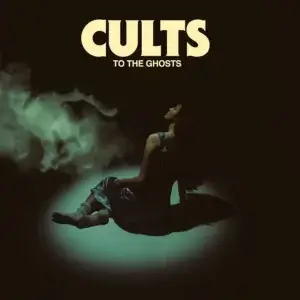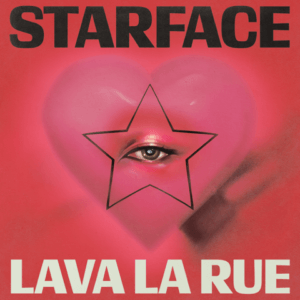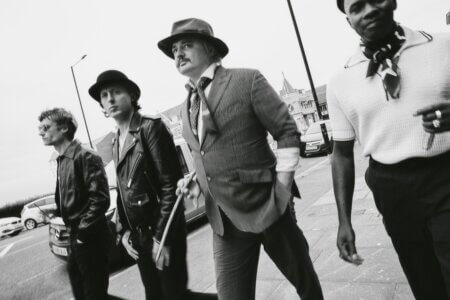
7
Speak Now (Taylor's Version)
Taylor Swift
Only someone with as much superstar power and gravitas as Taylor Swift could be halfway through a project re-recording old albums and not have its impact or fan base fade. With the arrival of Speak Now (Taylor’s Version) last Friday, her most personal album is back up for grabs, but the fan favorite doesn’t quite live up to its impact.
Speak Now is one of the weightiest in Swift’s catalog, maybe the most anticipated for the re-recording project. Fearless still has a young innocence to it, but isn’t packed wall-to-wall with hits; and Red, whose update was released in 2021, stayed true to the original, having some odd, trend-following missteps just as Swift was approaching superstardom. But Speak Now, entirely self-written at 19 years old, has the sort of emotional power a record like Lorde’s Pure Heroine achieved — the artistic navigation of someone young still trying to figure out the world. The scathing “Dear John”, heartbreaking “Last Kiss” and “Back to December”, and powerful country-pop hits like “Mine” or “Story of Us” all made Speak Now a dynamic, powerful album.
If you’re only a marginal Swiftie, you might be unaware that the most anticipated part on the re-recording wasn’t even a single, but a single line on album standout “Better Than Revenge.” An angry, vindictive song blaming a woman for the misogynistic trope of ‘stealing’ her boyfriend, Swift wrote, “She’s better known for the things she does on the mattress,” clearly uncouth by today’s standards. Rumors swirled around this particular line — would she change it? Would she leave it alone? What does it mean for her if she does either? — ultimately ending in an anti-climatic change. On the new version, she sings, “He was a moth to the flame, she was holding the mattress,” and Swift herself has never acknowledged the revision. Several people detested the change, saying that the anger and bitterness of the original track was something that should have been preserved, slut-shaming and coarse lyricism included. It seemed like nobody was in favor of the update — though the more online Swifties that prefer her to be “unhinged” won out in the internet’s litmus test — but my perspective was changed when a friend of mine reminded me that the recording project isn’t done for sales, or really, for her fans, but for Taylor herself.
Swift is a self-described “pathological people pleaser” who finally addressed her insistence on being morally good on “Anti-Hero”, lead single from her 2022 hit album Midnights. “Did you hear my covert narcissism I disguise as altruism?” she asks. It’s not surprising that she would change it, then, as the re-recording project is ultimately a way to update and better her catalog — what is surprising is the relative tameness of the songs surrounding it.
Swift’s voice doesn’t seem to match up to the impact she had previously — this is most shown on the energetic “Mine”, “Sparks Fly”, and “The Story of Us”, some of the best songs she’s ever written. Some slow-burns like “Enchanted”, “Back to December”, and “Dear John” are comparable to their originals, likely due to an updated power her voice possesses. Where the update is most noticeable is on places like “Never Grow Up” or “Innocent”, places where her 20-year-old self imagines the future. “Wish I’d never grown up,” she sings on the former, an electrically emotional song she describes her parents, memories, and youth’s fleeting nature. “Innocent”, too, concerning Kanye West’s immaturity, is where she sings “32, and still growing up now” while she’s 32 herself, a circular plot only Swift would think of. Interestingly, the album’s title track is tolerable now as distance is removed from the person who wrote it. “Speak Now” remains a fan-fiction-esque hero-story where Taylor interrupts a wedding to profess her love, describes gowns as “pastry-shaped” and giggles: it all somehow works on the re-recording, where it feels like she’s acknowledging and making light of one of her corniest songs yet.
Speak Now also likely has the weakest batch of vault tracks of the project so far — “Timeless” is a clunkily-written notion that she’d find a past love in any age (“In the fifteen hundreds in a foreign land / And I was forced to marry another man”); “When Emma Falls in Love” harbors a pretty predictable twist, and the underwritten “Foolish One” details the finality of a relationship. “Castles Crumbling” featuring Hayley Williams of Paramore would have been the standout, if not for the excellent “I Can See You”, a horny indie rock cut. Has Taylor’s voice ever matched a backing track so perfectly? It feels like this genre of music was what she was born to make — one can only hope she goes in this direction for her next studio album.
Speak Now (Taylor’s Version) suffers from being skippable. Fearless (TV)’s excellent vault tracks and Red (TV)’s epic 10-minute “All Too Well” repackaging made them not-to-miss cultural highlights, but the problem with Speak Now (TV) is that on many cases, the original holds up as being better than its repackaging. There’s no longer the trembling voice in “Last Kiss”, the naivete in “Enchanted” or “Mine”, and war-waging tracks like “Dear John” or “Innocent” don’t hit the same now that it’s not being sung by a prodigious 20-year-old. Tracks like “I Can See You” or some modernized tracks might make it onto a few “Best of Taylor” playlists, but the magic remains swirling around the album’s 2010 iteration.
order Speak Now (Taylor’s Version) by Taylor Swift HERE
Latest Reviews
Tracks
Related Albums
Related News
Advertisement
Looking for something new to listen to?
Sign up to our all-new newsletter for top-notch reviews, news, videos and playlists.














